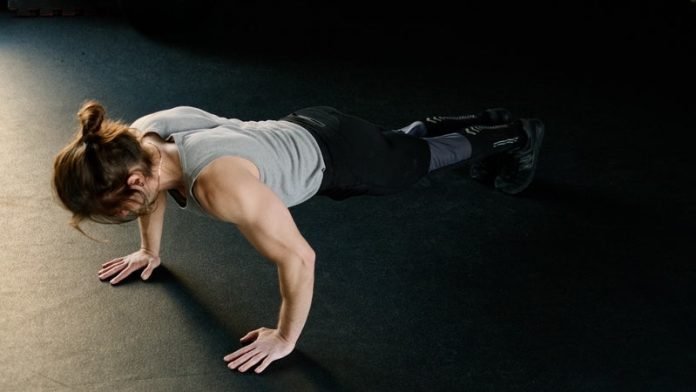
A new study from Iowa State University found resistance exercise may be superior to aerobic exercise for getting better sleep.
They found people who completed 60 minutes of resistance exercise, three times a week for a year, slept longer and fell asleep faster than participants who did aerobic-only workouts or a combination of aerobic and resistance exercises for the same amount of time.
The study was reported at the American Heart Association’s Epidemiology, Prevention, Lifestyle & Cardiometabolic Health Conference and was conducted by Angelique Brellenthin et al.
In the study, the team assigned over 400 adult participants to one of three exercise groups or a non-exercise group.
Participants in the resistance exercise-only group completed 3 sets on 12 machines that targeted all the major muscle groups. Exercises included bicep curls, crunches, leg extensions, and triceps dips.
Those in the aerobic exercise-only group walked or jogged on treadmills or opted for elliptical machines or stationary bikes.
The machines automatically monitored the participants’ heart rates to ensure they kept a pace in the moderate-to-vigorous intensity zone.
Participants in the combined exercise group completed 30 minutes of cardio, followed by another 30 minutes of resistance training.
All of the participants filled out a widely-used, detailed sleep questionnaire throughout the study. The researchers found more than one-third of all participants reported poor quality sleep at the start of the study.
The team found among the 42% of participants who were not getting at least 7 hours of sleep at the study’s start, sleep duration increased by an average of 40 minutes in the resistance exercise-only group compared to an average increase of 18 minutes in the other groups, including the group that did not exercise.
People in the resistance exercise-only group also reported falling asleep an average of 3 minutes faster at the end of the 12 months. The team found no notable change in the other groups.
Sleep efficiency (i.e., how much time asleep divided by the total time in bed) increased for participants in the resistance exercise and combined exercise groups but not in the aerobic or control groups.
Previous research has found poor sleep quality is strongly associated with high blood pressure, elevated cholesterol, and increased risk of heart attacks and strokes.
Because resistance exercise is a powerful stimulus that causes stress to the muscle tissue, that stimulus may send a stronger signal to the brain that this person needs to sleep and to sleep deeply to repair, restore, and adapt the muscle tissue for the next time they need it.
The team says the findings show resistance exercise goes above and beyond the benefits people would see from these other types of exercise in terms of sleep quality.
If people are concerned about their sleep and have a limited amount of time to exercise, they may want to consider prioritizing resistance workouts.
Copyright © 2022 Knowridge Science Report. All rights reserved.



